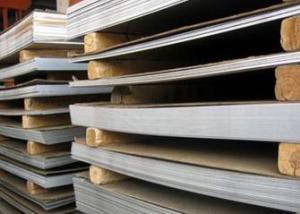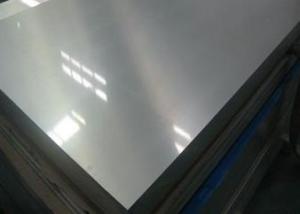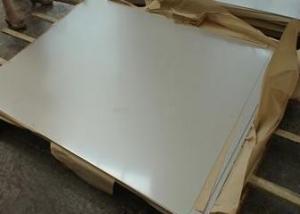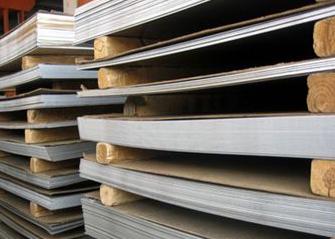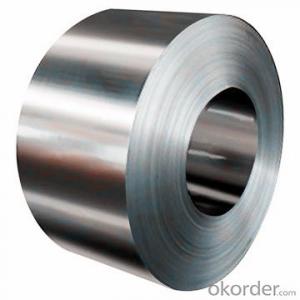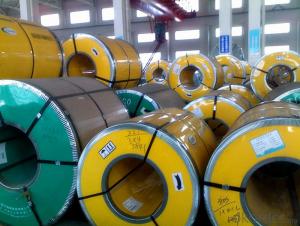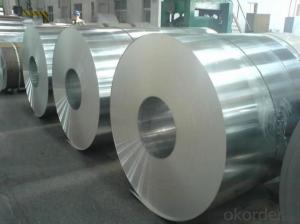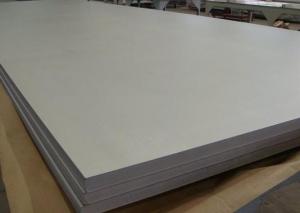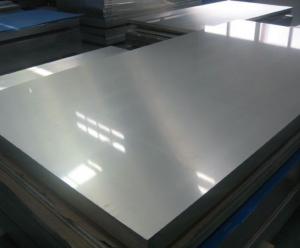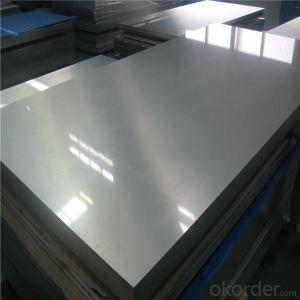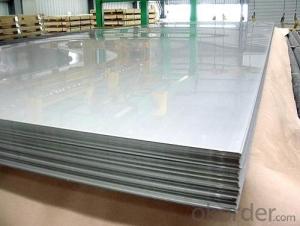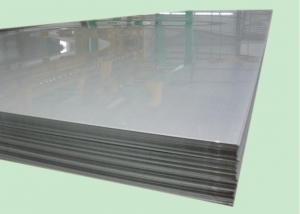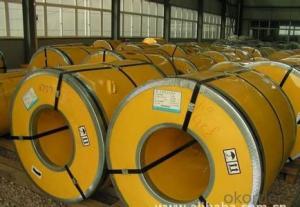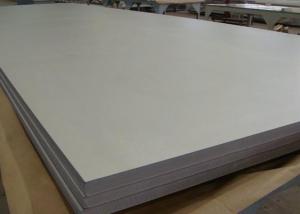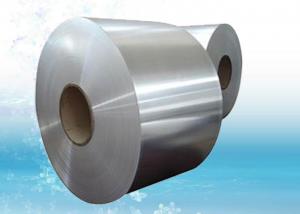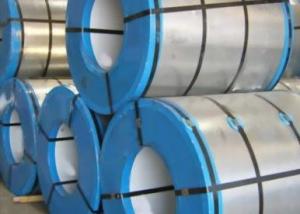AISI202 Stainless Steel Sheet
- Loading Port:
- China Main Port
- Payment Terms:
- TT or LC
- Min Order Qty:
- 1 Ton m.t.
- Supply Capability:
- 1000 Tons Per Month m.t./month
OKorder Service Pledge
OKorder Financial Service
You Might Also Like
202 stainless steel sheet
1. Chemical composition
|
C |
Si |
Mn |
P |
S |
Ni |
Cr |
|
max0.15 |
max1.00 |
7.50-10.50 |
max0.06 |
max0.03 |
4.00-6.00 |
17.00-19.00 |
2. Mechanical properties
|
Yield Strength |
Tensile |
Elongation |
Hardness (HV) |
Hardness (HRB) |
|
245 |
590 |
40 |
218 |
95 |
3. Standard: AISI, ASTM, GB, EN, DIN, JIS
4. Surface: 2B, NO.1, BA, NO.4, Hairline, SB, Mirror finish, Anti-skid, Cherkered etc.
5. Size: Thickness: 0.3-3mm (cold rolled), 3-40mm (hot rolled)
Width: 1000mm or 1219mm or 1240mm for cold rolled, 1500mm for hot rolled.
Length: As customers' request.
6. MOQ: 1 Ton
7. Payment terms: T/T or L/C
8. Packing: Seaworthy package with wooden or Iron pallets with the paper and the steel strip, or as customers' request.
9. Delivery time: Usually about 7 days after we confirming the order, or according to your quantity.
If you have any question or demand, pls feel free to contact me.
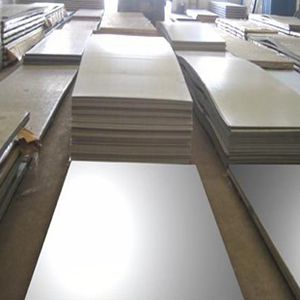
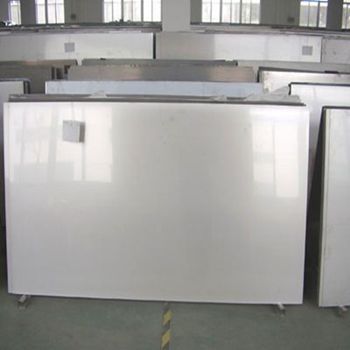
- Q: Can stainless steel strips be used in construction applications?
- Yes, stainless steel strips can be used in construction applications. Stainless steel is a highly versatile material that offers excellent durability, strength, and corrosion resistance. These properties make it suitable for a wide range of construction applications, including structural components, roofing, cladding, flooring, and decorative elements. Stainless steel strips can be used in the construction of buildings, bridges, pipelines, and other infrastructure projects. They are often used in areas where high strength and resistance to harsh environmental conditions are required. Additionally, stainless steel strips can be easily fabricated and customized to meet specific construction needs, making them a popular choice in the industry.
- Q: Are stainless steel strips resistant to abrasion and wear?
- Stainless steel strips, in general, possess resistance to abrasion and wear. Their durability and strength are well-known characteristics that make them highly resistant to damage from friction and contact with other surfaces. This resistance can be attributed to the unique properties of stainless steel, including its high corrosion resistance, hardness, and toughness. Consequently, stainless steel strips are suitable for a wide range of applications that involve exposure to abrasive environments or high levels of wear, such as in the automotive, construction, and industrial sectors. Nevertheless, the degree of resistance to abrasion and wear may vary depending on the specific grade and surface finish of the stainless steel strip, as well as the type of abrasives or wear mechanisms involved. To ensure the appropriate selection and use of stainless steel strips for particular applications, it is advisable to consult the manufacturer's specifications and guidelines.
- Q: Can stainless steel strips be used in the aerospace fasteners?
- Yes, stainless steel strips can be used in aerospace fasteners. Stainless steel is known for its corrosion resistance, strength, and durability, making it a suitable material for aerospace applications that require secure and reliable fastening.
- Q: Can stainless steel strips be used for kitchen appliances?
- Indeed, kitchen appliances can make use of stainless steel strips. The durability, resistance to corrosion, and sleek look of stainless steel make it a popular choice for kitchen appliances. It offers a surface that is easy to clean and maintain, ensuring hygiene. To cover and safeguard different sections of kitchen appliances like refrigerator doors, dishwasher panels, oven fronts, and range hoods, stainless steel strips can be employed. Furthermore, these strips can be tailored to specific design needs in terms of thickness, width, and finish. In conclusion, stainless steel strips are a flexible and sensible choice for improving the appearance and functionality of kitchen appliances.
- Q: Can stainless steel strips be formed into different shapes?
- Yes, stainless steel strips can be formed into different shapes. Stainless steel is a malleable material that can be easily shaped and manipulated. It can be bent, folded, rolled, or stretched into various forms and configurations. This flexibility allows stainless steel strips to be used in a wide range of applications, such as in the manufacturing of appliances, automotive parts, construction materials, and more. The ability to form stainless steel strips into different shapes makes it a versatile material that can be customized to meet specific design requirements.
- Q: Can stainless steel strips be used in transportation applications?
- Yes, stainless steel strips can certainly be used in transportation applications. Stainless steel is known for its high strength and durability, which makes it suitable for various transportation components. It is commonly used in the automotive industry for manufacturing parts such as exhaust systems, body panels, and trim. Stainless steel strips are also used in the aerospace industry to make aircraft components, including frames, brackets, and fittings. Additionally, stainless steel's resistance to corrosion and oxidation makes it ideal for marine transportation applications, such as boat building and shipbuilding. Overall, stainless steel strips are versatile and reliable materials for transportation applications due to their strength, durability, and resistance to environmental factors.
- Q: Are stainless steel strips resistant to hydrochloric acid?
- Stainless steel strips typically exhibit resistance against hydrochloric acid. This attribute stems from stainless steel's renowned ability to resist corrosion and withstand chemical assault. Nevertheless, the degree of resistance may vary depending on the grade of stainless steel employed. Superior grades like 316 or 317 exhibit greater resistance to hydrochloric acid when compared to lower grades like 304 or 430. It is worth mentioning that extended exposure or direct contact with concentrated hydrochloric acid can still cause some corrosion or pitting in stainless steel. Nonetheless, stainless steel is widely acknowledged as one of the most resistant metals to this acid.
- Q: How do you prevent rusting of stainless steel strips?
- There are several measures that can be taken to prevent the rusting of stainless steel strips: 1. It is recommended to clean stainless steel strips regularly using mild soap or detergent and warm water. This will effectively eliminate any dirt, dust, or contaminants that may cause corrosion. 2. It is important to avoid direct contact between stainless steel and corrosive substances like acids, bleach, or saltwater. Any spills should be promptly cleaned to prevent prolonged exposure. 3. Thoroughly drying stainless steel strips after cleaning is crucial to eliminate moisture, as it can promote corrosion. Therefore, ensuring the surface is completely dry is essential. 4. The application of protective coatings, such as clear lacquer or oil-based coatings, can create a barrier between the steel and the environment, reducing the risk of rusting. Regular reapplication of these coatings is necessary to maintain their effectiveness. 5. Proper storage methods are important to prevent rusting. Stainless steel strips should be stored in a clean and dry environment, away from moisture or corrosive substances. Additionally, using padding or separators between strips can prevent scratching, which may lead to rusting. 6. Regularly inspecting stainless steel strips for any signs of corrosion or damage is beneficial in identifying and addressing potential issues early on. Timely action can prevent further rusting and extend the lifespan of the strips. By adhering to these preventive measures, the risk of rusting in stainless steel strips can be significantly reduced, ensuring their longevity and preserving their appearance.
- Q: Can stainless steel strips be used in marine applications?
- Yes, stainless steel strips can be used in marine applications. Stainless steel is highly resistant to corrosion, making it suitable for use in marine environments where exposure to saltwater, moisture, and other harsh conditions is common. Its durability and strength make it an ideal choice for marine applications such as boat fittings, marine hardware, and shipbuilding.
- Q: Are stainless steel strips available in different finishes?
- Indeed, there is a variety of finishes for stainless steel strips. This versatile material can be finished in multiple ways to attain distinct appearances and properties. Among the commonly used finishes for stainless steel strips are brushed, polished, satin, mirror, and matte finishes. These finishes differ in terms of texture, shine, and reflectivity, providing a broad array of aesthetic choices. Moreover, the various finishes also impact the corrosion resistance, durability, and cleanability of stainless steel strips, rendering them suitable for diverse applications and environments.
Send your message to us
AISI202 Stainless Steel Sheet
- Loading Port:
- China Main Port
- Payment Terms:
- TT or LC
- Min Order Qty:
- 1 Ton m.t.
- Supply Capability:
- 1000 Tons Per Month m.t./month
OKorder Service Pledge
OKorder Financial Service
Similar products
Hot products
Hot Searches
Related keywords
